Cord blood banking is one of the most exciting medical developments in the last decade. However, as it can be relatively new to most parents, there are a lot of misconceptions about this state-of-the-art technology. If you’ve heard about the benefits of banking your baby’s umbilical cord but aren’t quite sure if you want to do it, the following myth busters could help you make an informed decision!
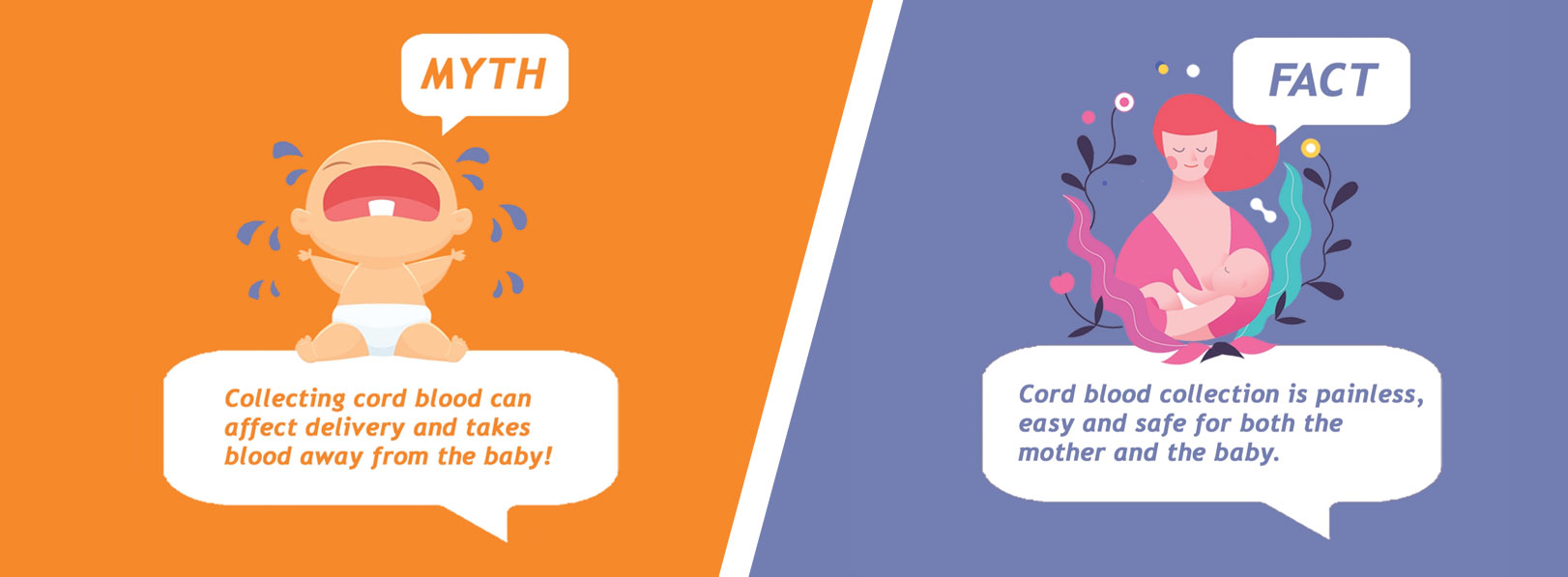
MYTH: Collecting cord blood can affect delivery and takes blood away from the baby!
FACT: Cord blood collection is painless, easy and safe for both the mother and the baby.
The collection of cord blood is a safe and painless procedure. Since cord blood is only collected after your baby has been safely delivered, and the procedure carried out by your attending physician, it does not pose a significant risk to you or your baby. It also does not affect the care of both mother and child during the delivery itself.
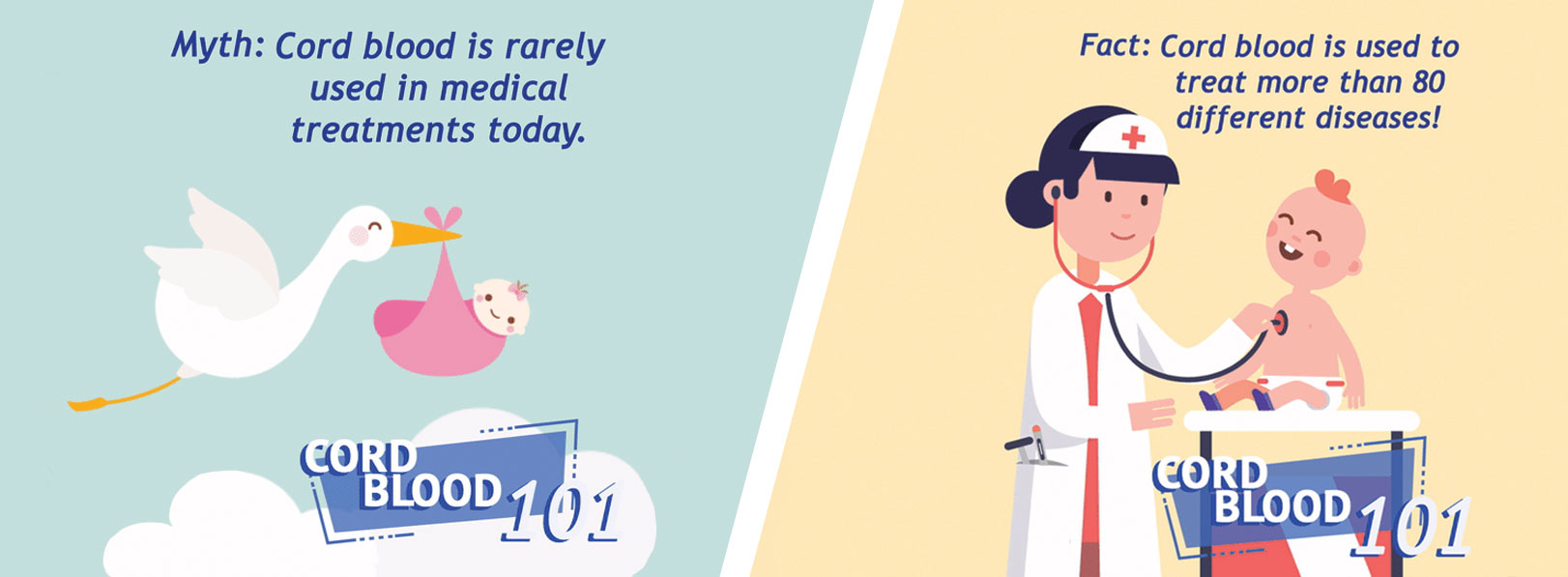
MYTH: Cord blood is rarely used in medical treatments today.
FACT: Cord blood is used to treat more than 80 different diseases!*
Cord Blood Stem Cells transplants have been used to treat more than 80 diseases including bone marrow disorder, blood cancers and autoimmune diseases.
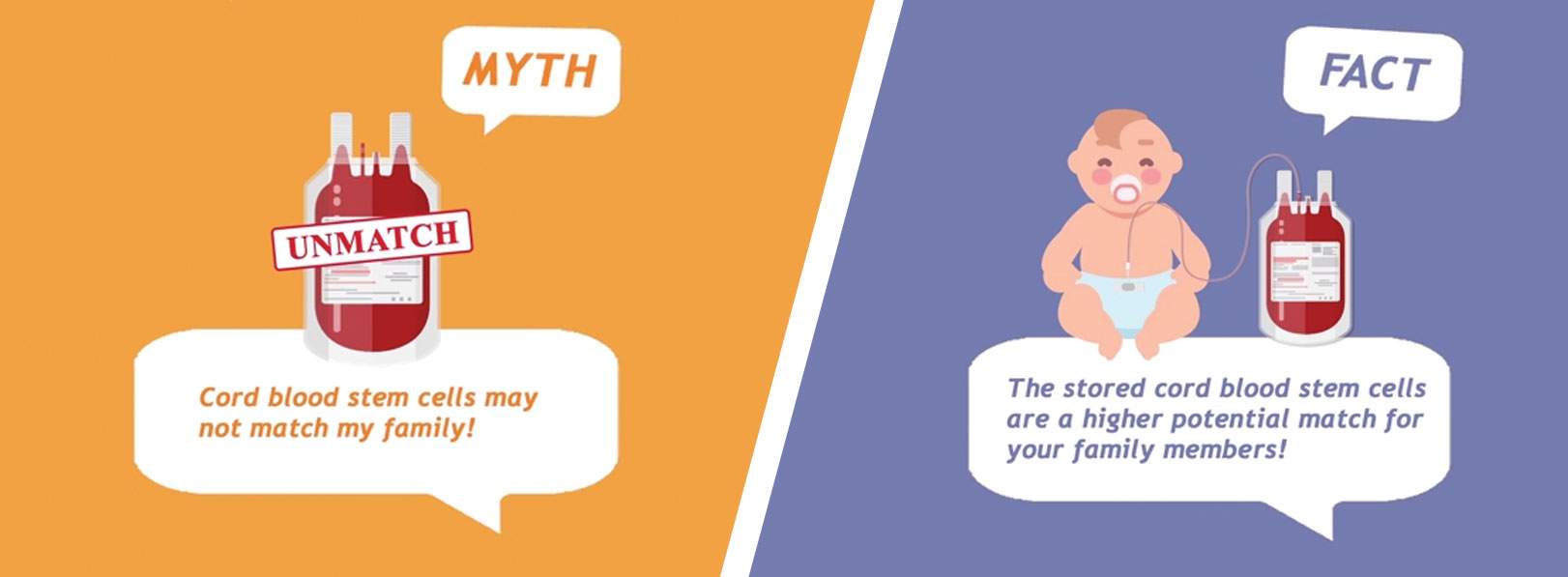
MYTH: Cord blood stem cells may not match my family!
FACT: The stored cord blood stem cells are a higher potential match for your family members!
Your baby’s cord blood can potentially be used for other family members, especially his siblings. This is because cord blood transplants can tolerate HLA Antigen mismatches while other sources like Bone Marrow and Peripheral Blood Stem Cell Transplants must have the perfect match.
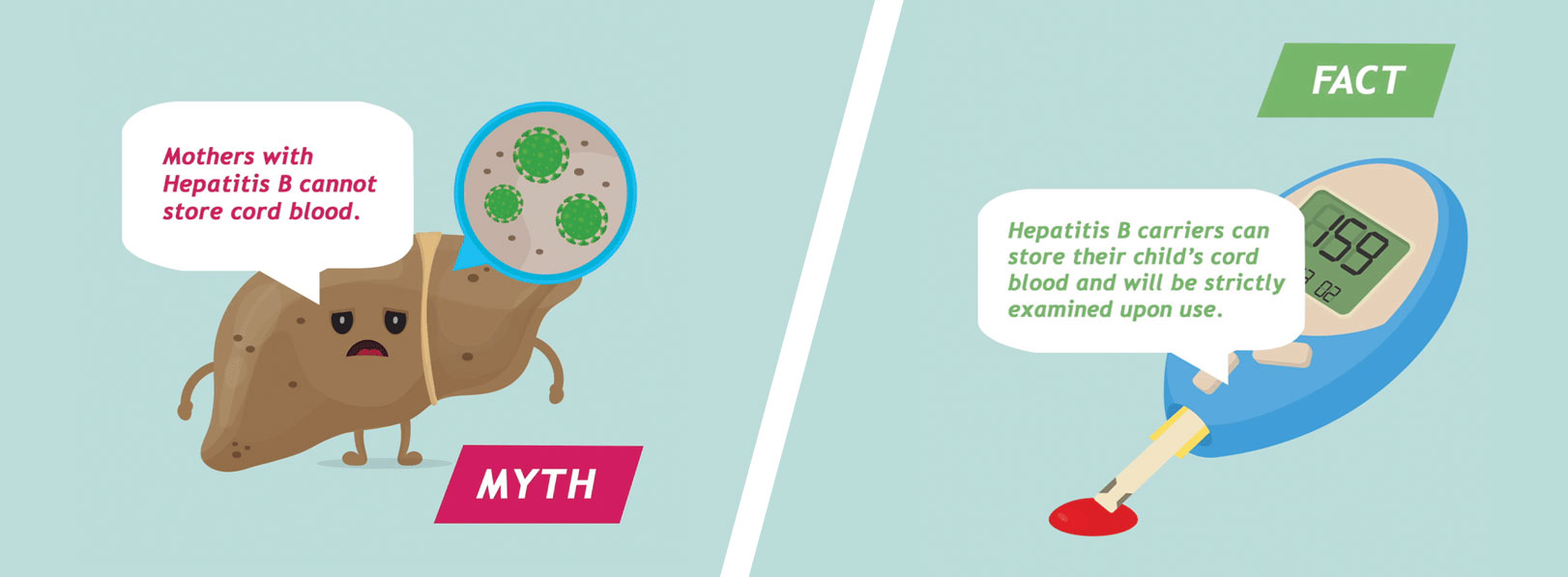
MYTH: Mothers with Hepatitis B cannot store cord blood.
FACT: Hepatitis B carriers can store their child’s cord blood and will be strictly examined upon use.
Hepatitis B carriers (especially mothers) can actually store their child’s cord blood, strictly for autologous use without any major issues. Your baby will usually be vaccinated at birth and immunised against the same virus. Hence, even in the worst-case scenario where the cord blood is contaminated with the virus, the immunised child will be protected. Furthermore, there are now many effective medications that can eradicate the virus even if one becomes infected.
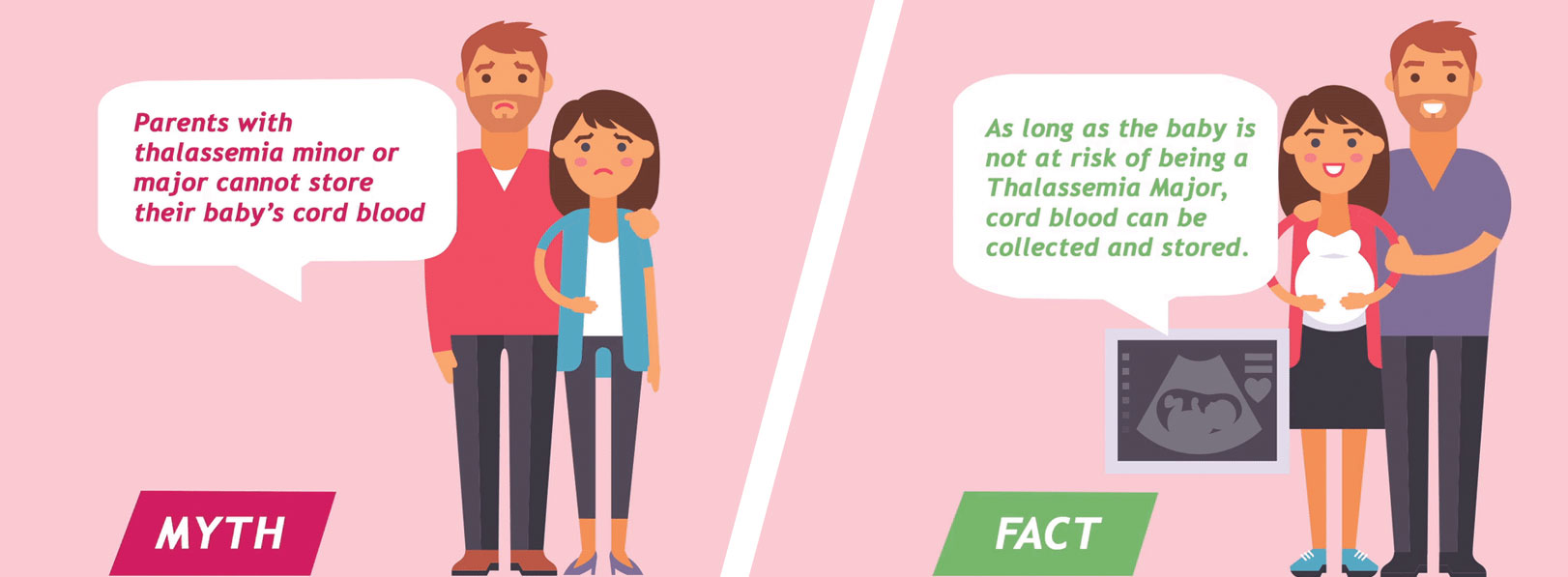
MYTH: Parents with Thalassemia minor or major cannot store their baby’s cord blood.
FACT: As long as the baby is not at risk of being a Thalassemia Major, cord blood can be collected and stored.
Having Thalassemia Minor or the Thalassemia trait is usually a mild blood disorder. Your life expectancy is normal and you are not prone to more medical illnesses than any other person. However, you should inform your obstetricians of your carrier status during the early antenatal period so that screening tests can be done.


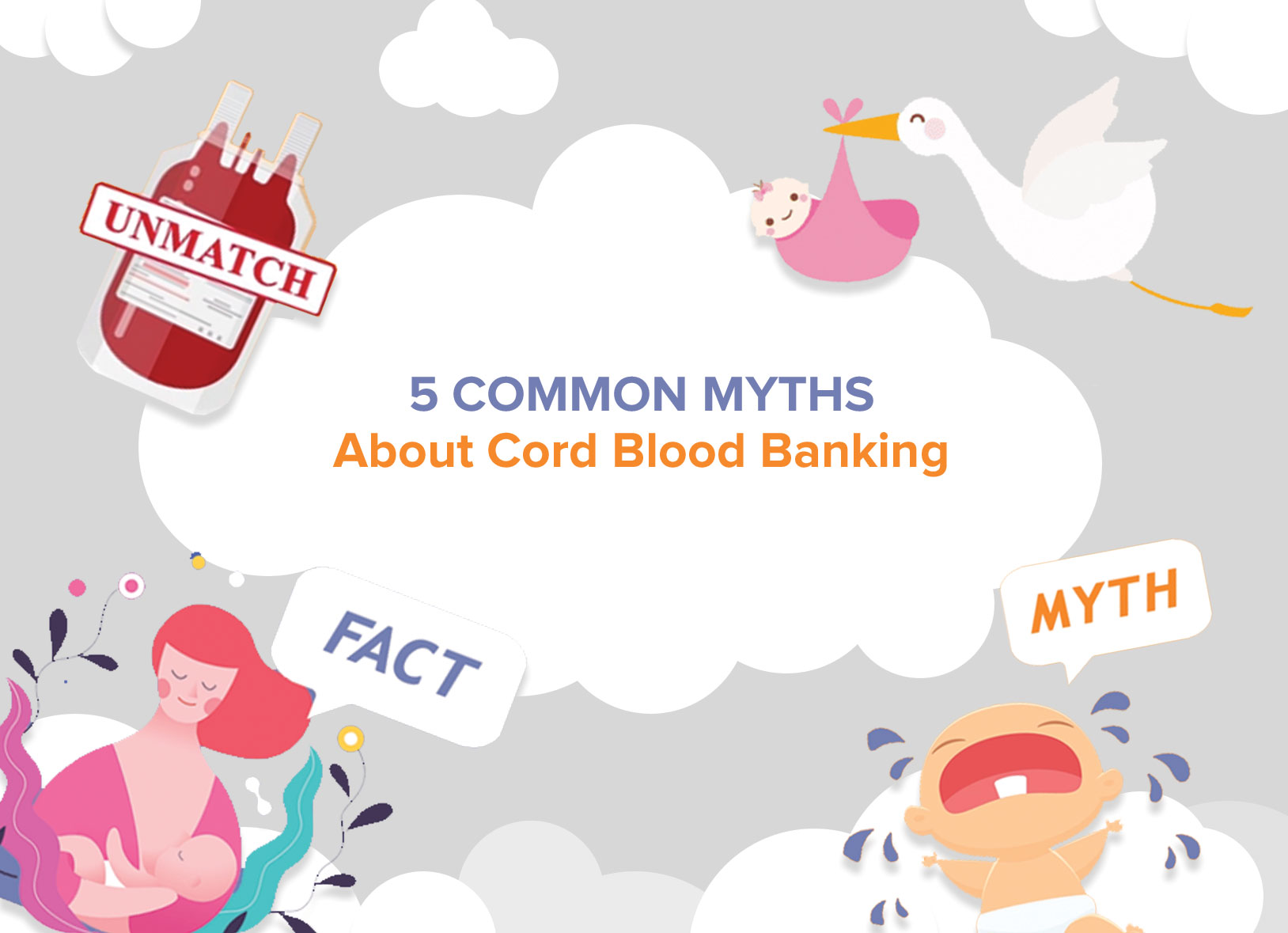




 See more blogs
See more blogs